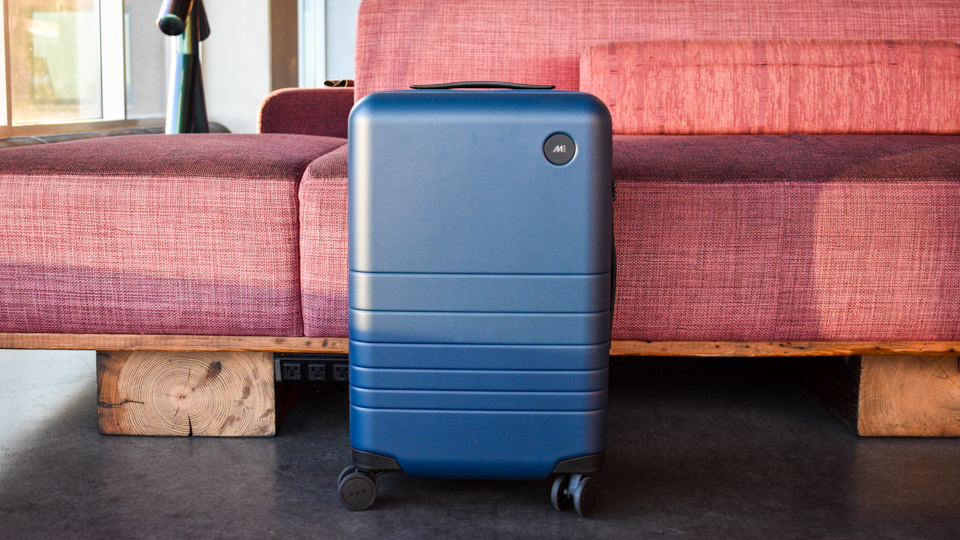
If you’re anything like me, chances are you’ve never used a travel agent (aka travel advisor).
But as navigating cancellation fees, travel insurance plans, and foreign travel requirements, like whether or not you need proof of a regular COVID test, becomes trickier and trickier, travel agents can be especially handy.
In normal life, they’re also on top of the latest travel info, including the latest hotel openings and the coolest new eateries.
The thing that you also never thought about: Travel agents also have tons of industry connections, meaning they can help with reservations at that restaurant that’s been booked solid for months, or secure you an upgraded seat on that train from Munich to Berlin.
Plus the fact that planning travel itineraries is what they do for a living.
Typically for a small fee (we’ll get to that in a bit), it might be worth it to eliminate all the stress that comes with booking buses, scheduling tours, and planning a detailed vacation to say, Mexico, with your three siblings.
The difference between a travel agent and a travel consultant
Not all travel agents are the same.
A travel agent/advisor typically helps arrange travel for clients on behalf of suppliers. This means they often work with certain destinations, hotel groups, and tour organizers and have the inside track when it comes to scoring rooms with the best views, or discounted and/or behind-the-scenes tickets to the hottest museum exhibits.
For instance, the American Automobile Association (AAA) has its own staff of travel agents that work with AAA-approved lodgings and partnering car rental and cruise companies. Booking with these partners means lots of perks (say, a free night’s stay) and getting the biggest bang for buck.
Travel consultants are usually more specific in their scope. They get to know their clients’ likes and dislikes (although a good travel agent will do this too) when it comes to traveling, like asking: Are you a thorough planner or would you prefer a bit of downtime to do what you want each day? Based on responses, they then help create customized itineraries accordingly.
One such example is Seattle-based Explorer X, a tour operator that specializes in “handcrafted” adventures personalized to each individual client. While they have a range of small group adventures to choose from, their focus is less about saving money and/or selling packages, and more about creating truly one-of-a-kind travel experiences like a night out with a salsa class in Cali, Colombia..

Ready for an adventure?(Roderick Eime / Flickr)
Is there certification I should be looking for?
A certified travel agent is someone who’s completed a comprehensive training program successfully. This means they’ve already been properly vetted, adding a welcome layer of trust and security.
The American Society of Travel Agents (ASTA) is the gold standard in travel agent credibility and certification. All members are required to adhere to a strict Code of Ethics, which includes things like agreeing to provide the most factual and accurate information about to their clients and full disclosure about any hidden fees or sales promotions associated with their suppliers. ASTA also has more than 20,000 members in more than 140 countries, meaning connections galore!
Additional certifications to look for are Certified Travel Counselors (CTC), an added bonus that means they’ve had management training and remain current on industry trends, and Cruise Line International Association (CLIA), for travel agents that specialize in cruises.
At the very least, make sure the agent is a Certified Travel Associate (CTA), which is the minimum professional certification for a travel agent.
Does the travel agent book literally everything?
Travel agents are great for longer, complex trips that involve a mix of tour packages, hotel bookings, car rentals, visa and passport applications, etc. They can help secure travel insurance, negotiate airfares, and navigate bus and train schedules.
In many ways, they’re a one-stop shop.
If you’re hoping to stay at an Airbnb or a youth hostel, chances are most likely that a travel agent won’t be able to assist. However, Vacation Rentals by Owner (VRBO), which includes properties like a Jersey Shore beach house or a farmhouse in Tuscany, has its own program and is still very much on the table. Just look for an agent who’s part of the VRBO affiliate program.
Though travel agents can assist with à la carte bookings like an individual tour or airfare, you won’t save much (if any) money at all by using one.
For trips that are less structured and done piece-meal—say you want to fly to Paris but want to keep things flexible once you get there—you’re better off handling these things on your own.
Do I pay the travel agent, or...? 💰
In the past, though travel agents typically receive commissions from the hotels and tour operators they refer, in recent years the bulk of them have also been securing a “Plan to Go” client fee upfront for their .
This fee varies, though a non-refundable $100 to $300 is fairly standard.
This fee covers the planning of the trip, and often takes the agent’s industry connections into consideration. The more established they are, they more they’re worth. In many cases, though not all, the fee is ultimately applied to the overall cost of the trip.
Some agents also charge fees for individual , such as just booking a flight or securing tickets to the sold-out immersive Van Gogh exhibit in San Francisco. They typically range anywhere from $25 to $100 for each stand-alone service.
Always ask beforehand. You can try and negotiate if needed.
How far in advance to plan

Someone said beach?(Ray in Manila / Flickr)
Start looking ASAP. “Or as soon as you have an idea of where you want to go and what you want to do,” says Tina Bradley, of Wish You Were Here Vacations. “A good agent/client experience is built with a good relationship,” she says, “and that can take time to cultivate.”
Some travel agents work with clients who start planning their trips years in advance, and others who decide they’d like to slink about to Tahiti in less than a month’s time.
Still, Bradley says that getting sometime on your agent’s radar early can only help you.
Places to start looking for a travel agent
Bradley says ask your friends and family for referrals. Or peruse the ASTA website.
It allows you to search for travel agents by both the destinations they specialize in and the types of travel, such as adventure, safari and wildlife, or even solo travel. For luxury travel advisors, be sure to check out Virtuoso.
When you eventually find a travel agent, or several, who cover your destinations and activities of interest, call them up and ask them about themselves. Say you’re planning a trip to Vietnam: have they been there themselves? Sent other clients there?
It pays to ask them how long they’ve been in the business, and what some of their favorite travel locales are. Do they specialize in bike trips? Culinary adventures? All-inclusive hotel stays?
Bradley says that two things to really think about are, are they listening to who you are and what you want? Do they have time, the knowledge, and the desire to do the research? Ultimately, you want an agent who’s in your corner and wants to work with you as much as you want to work with them.
“I’ve successfully booked many people to destinations [new to me],” says Bradley, “but I’ve also passed some to other agents that weren’t places I was interested in. Or if I didn’t have the time to give the client the experience level I strive for.”
One last thing: remember to be direct about your budget. In the end, a good travel agent is intended to save you money, as well as give you the biggest bang for buck.



